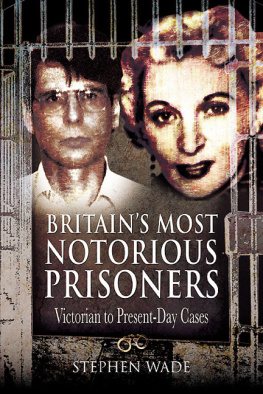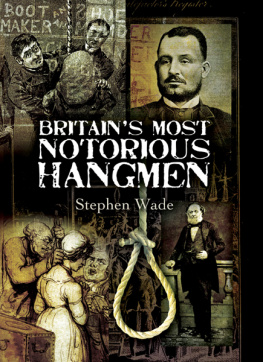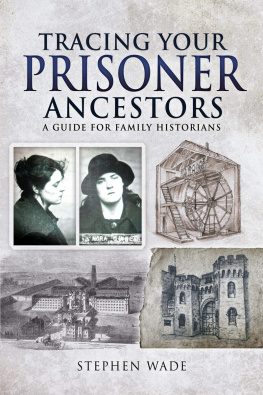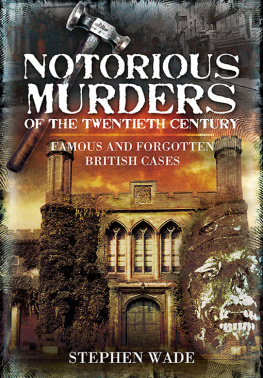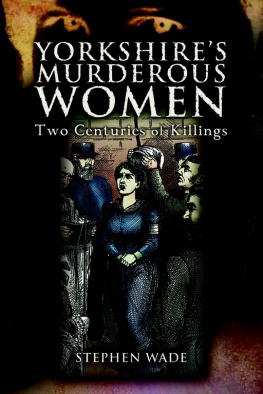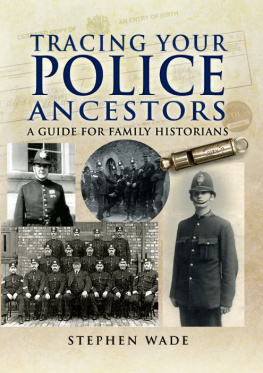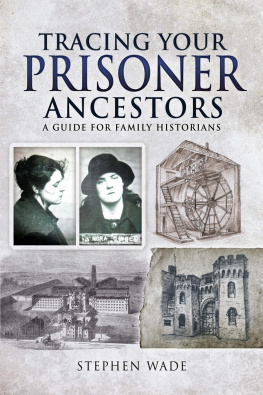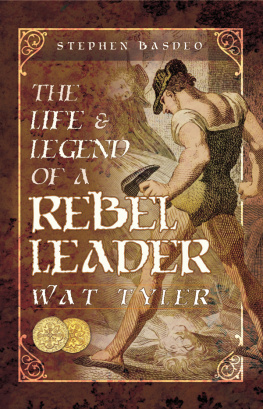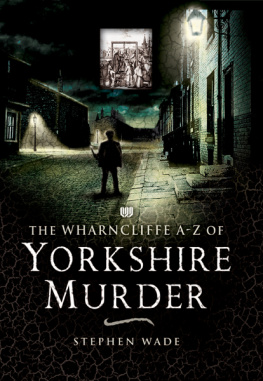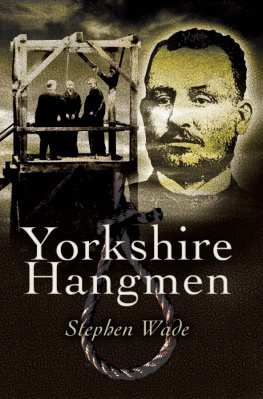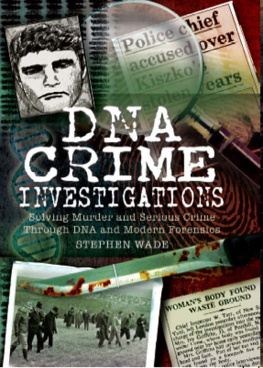To Joseph Schofield, who fought in the first war, and helped rebuild London after the second
First published in Great Britain in 2016 by
PEN & SWORD MILITARY
an imprint of
Pen and Sword Books Ltd
47 Church Street
Barnsley
South Yorkshire S70 2AS
Copyright Stephen Wade, 2016
ISBN 978 1 47386 154 1
eISBN 978 1 47386 156 5
Mobi ISBN 978 1 47000 000 0
The right of Stephen Wade, to be identified as the author of this work has been asserted by him in accordance with the Copyright, Designs and Patents Act 1988.
A CIP record for this book is available from the British Library.
All rights reserved. No part of this book may be reproduced or transmitted in any form or by any means, electronic or mechanical including photocopying, recording or by any information storage and retrieval system, without permission from the Publisher in writing.
Pen & Sword Books Ltd incorporates the imprints of Pen & Sword Archaeology, Atlas, Aviation, Battleground, Discovery, Family History, History, Maritime, Military, Naval, Politics, Railways, Select, Social History, Transport, True Crime, and Claymore Press, Frontline Books, Leo Cooper, Praetorian Press, Remember When, Seaforth Publishing and Wharncliffe.
For a complete list of Pen and Sword titles please contact
Pen and Sword Books Limited
47 Church Street, Barnsley, South Yorkshire, S70 2AS, England
E-mail:
Website: www.pen-and-sword.co.uk
Introduction
Writing about the history of ones own home town is a peculiarly strange task; when the history in question is still just within the compass of oral history, or at least exists in the family myths and legends, then that strange feeling is enlarged and enriched by a process of enquiry that has to resist too much subjectivity. My preparation for the book consisted of a few random questions, a skimming of family photograph albums, and an interrogation of my own memory; after all, I had known and spoken to several survivors of the Great War.
What was for many years in my writing life merely another historical subject suddenly became partly an examination of my own preconceptions about that war and its aftermath.
Great historical events tend to generate myths along with the statistics, and sometimes these perhaps distorted tales penetrate family history. Such is the case with my Leeds family. The focus for this is an old photograph, showing my grandfather, Private Joseph Schofield, of the Kings Own Yorkshire Light Infantry, standing between two uniformed Tommies. Was he the cook, as he was wearing a dull cream shirt and white trousers, or was he a prisoner of war? In my childhood, the questions bothered me for years, until one day I asked an uncle. Yes, it seems that Joe was a cook. That matched well with my childhood memories of visiting the Schofields in their Beeston terrace, as Granddad Joe would make me army porridge or an army breakfast, which meant essentially food in lard and fried so that it was generally delicious at a time when everything at meals seemed to be oily.
I was born in Leeds at St Margarets Maternity Home on Hyde Park, just after the war with Hitler, and my earliest memories are run through with things military. Uncles from the Wade family in Churwell and Gildersome served in the navy, army and air force. Memories of the First World War, though, rarely came up; the second war dominated talk, as I heard about the siege of Malta and life on minesweepers. Why was the Great War so marginal? I didnt ask this question until I was in my twenties. But I have asked it since, particularly when I learned about Dr Peter Liddle of Ripon, who set about capturing Great War memories, realizing that they were being lost to the oblivion of textless history.
Today, approaching the subject of the contributions of Leeds to that war, and the experience of local people on the home front as well as in the theatres of war across Europe and Asia, I feel a sense of duty in reclaiming some of the stories. There was a long, uneasy silence in the interwar years regarding some of the sheer enormity of the loss of life in a war whose nature had never been created before, throughout the long chronicle of the British Empire.
Of course, there is already a vast literature on the subject, and that doyen of Leeds writers, soaked in local memories, Alan Bennett, has in a sense given all future Leeds memoirists a template for the Great War family story. This is in his essay Uncle Clarence , in which he recounts a trip to find the war grave of his uncle, who died in Flanders on 21 October 1917. Bennett neatly isolates the iconic nature of all our glorious dead in that conflict by writing, He was always twenty all through my childhood I feel exactly that when I look at Private Joseph Schofield. Although he survived the war, and I got to know him as a warm, friendly grandfather in the 1950s, he was, in another strange way, also frozen in time in that photo, and that was from a war that meant nothing to me and my family cousins, not until we were older and had been educated about the family past though even then it was never direct and accessible.
Bennett makes it clear that his Uncle Clarence was a presence also, in the same way that those who died nobly are always there, always revered. He writes, Clarence, later a silly-ass kind of name, a name out of farce and like Albert, never re-vamped, remains in our family the name of a saint. This is further explained by a memory of my own, as I sat in the graveyard at Stanbury, near Howarth, studying the war memorial. A woman arrived in a car and we chatted. It transpired that her great-uncle was listed on that stone of dignity and respect, another death in the long list from the Western Front. She visited his memorial, along with her mothers grave, and as I left she said she would go and have a chat with them. It is, of course, a one-way dialogue a monologue technically, but in our imaginations, they speak. The endless silence of their going leaves a need to create words and to speak with their shades.
The Great War was like no other. People everywhere sensed that this was a war with unimagined dimensions, and as they read the first accounts of the assassination of Archduke Franz Ferdinand by Serbian Gavrilo Princip, followed by the dominos going over as state followed state in having bonds and allegiances with neighbours or with other allies, the sheer horror of the coming conflict was apparent. Then followed the call to arms and Lord Kitcheners appeal for his new armies. The scale of the sacrifice demanded was not really grasped for some time: the first confrontations, with their heavy death tolls, gave a sense of terrible foreboding, and the general chatter about the war being over by Christmas faded as the Pals and Chums battalions went to their lengthy training periods at the camps of the Northern and Southern Commands. In Leedss case, the Pals were headed for Colsterdale in North Yorkshire.






